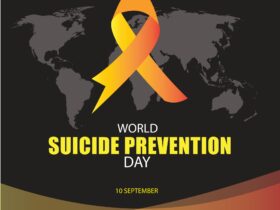A Cancer Survivor’s Guide to Returning to Work
Chances are you or a coworker will face the question of returning to work after cancer treatment. Here is a cancer survivor’s guide to returning to work. Cancer now affects 1 in 2 women and 1 in 3 men, while the survival rate for many cancers is increasing.
While the risk of cancer increases with age, it also affects many younger adults still in the workplace. An estimated 46% of patients diagnosed with cancer are between the ages of 20 and 64.
Surveys find that most cancer survivors who return to work say that it’s beneficial for their recovery. In addition to needing the income, you may enjoy using your skills and maintaining personal relationships.
For some cancer survivors, it’s gratifying just to have experiences apart from their medical condition.
Your individual needs will depend on many factors, including your specific diagnosis.
Use these suggestions to help you deal with health and career issues if you’re considering going back to work after cancer treatment.

Protecting Your Health:
-
Follow up
It’s important to follow your doctor’s recommendations for aftercare. Let your doctor’s office know if you need to arrange appointments and medications in a way that will have the least impact on your job.
-
Manage stress
Some cancer patients experience depression and anxiety, in addition to the usual job-related stress. Find relaxation practices that work for you like meditation and physical exercise.
-
Seek support
Be willing to accept assistance. Tell your family, friends, and coworkers what you need. Reach out to other cancer patients or call your local hospital to find a support group near you.
-
Understand your rights
There are several government programs and policies that may help you make the transition back to work, including the Americans with Disability Act and the Family Medical Leave Act. Ask your HR department or contact a social worker or advocacy group for more information.
-
Guard your privacy
You also have the right to keep your medical information confidential if you wish. Many employers are supportive, but you may sometimes face discrimination. Let your doctor know if you want to avoid any reference to cancer when they fill out forms from your employer.
E-book summary and info at the end of article
Readjusting to Work:
-
Stay in touch
Returning to the office will be easier if you can find ways to stay involved during your treatment. Maybe you can attend some meetings or read industry publications. Maybe you have an office buddy you can call occasionally.
-
Prepare for questions
You may find that some colleagues are eager to welcome you back while others seem uncomfortable. Rehearse what you want to say about your condition or your time away, so you’ll be ready with a response that works for you.
-
Reduce your hours
Part-time work is one of the simplest ways to transition back gradually. Many cancer patients experience fatigue, so respect your limits.
-
Ask for accommodations
Evaluate your workspace and usual tasks. Talk with your employer about modifications that can help you to do your job. For example, you might need to keep your office scent-free to avoid triggering nausea.
-
Write things down
Some of your symptoms may have more to do with the side effects of your treatment rather than the cancer itself. If chemotherapy affects your concentration, make written notes to remind you of any details you might forget.
-
Change jobs
You may still be able to work even if your current position poses difficulties for your recovery. Research other fields or apply for jobs with less demanding responsibilities.
With skillful communication and planning, you may be able to continue working after your cancer treatment. Talk with your doctor to ensure that you’re well enough to do your job and work with your employer to make any necessary adjustments.
If you would like us to email this article to you contact us at: caribbeanvybes@gmail.com with subject line: Cancer Survivor’s Guide
You can effectively turn this habit of positive thinking into a power tool boosting not only your life, success and future, but also your health and wellbeing. We think, act and do…If you are mainly positive, you will be focused on good things, happy thoughts, and successful outcomes. Your goals and energy should be focused and purposefully driven towards success. In this e-book you will learn how to change your thought patterns, habits and self-talk
E-book price U.S$0.99
Feel free to browse our bookstore at the link below:
https://caribbeanvybes.com/shop































